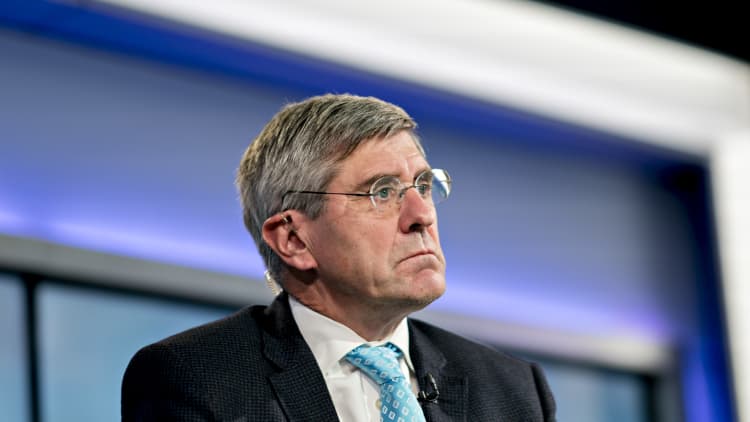
Jeremy Siegel, the longtime stock market bull and influential Wharton School professor, called for more diversity of thought among the members of the Federal Reserve's policymaking committee, saying the central bank's groupthink causes it to make mistakes.
"Over the last 15 years, over 100 votes have been taken, there's been one lone dissent by Fed governors against the policy of the chairman," Siegel told CNBC on Wednesday, hours before the Federal Open Market Committee, or FOMC, was expected to wrap up its latest two-day meeting with no change in interest rates.
That lone dissenting vote Siegel referred to was in September 2005 by then-Fed Governor Mark Olson. It was late in the long central bank chairmanship of Alan Greenspan. There were other dissenting votes during that period from regional Fed presidents. But Olson was the only Fed governor to voice opposition.
There are 12 voting members of the FOMC, consisting of seven Fed board governors who always vote; the New York Fed president who always votes; and four rotating regional Fed presidents.
"We look over 15 years, a lot of mistakes were made. You think there would be some more lively discussion," Siegel said in Wednesday's "Squawk Box" interview, while blasting the Fed for hiking rates in December, even in the face of a stock market collapse, and signalling at least two more increases in 2019.
"If I were on the board, I would have dissented. I think they were not looking at the signals in the marketplace," he said. "By the way, they admitted it. They made a pivot a couple weeks later. But why did we need the market to fall 20% during that period?"
He added, "I would like a little more split votes. It's not like the Supreme Court where we get 5-4 decisions. It's like 12 to nothing, 12 to nothing, 12 to nothing."
Since that Fed "pivot" to patience on rates this year, the has rocketed higher, reaching new highs this week and last week not since the fall before the bottom dropped out on Wall Street. Stocks tanked late last year, dipping briefly into a bear market, defined by declines of at least 20% from recent highs, on rate fears sparked by Fed Chairman Jerome Powell's October comments, which were later walked back, about an aggressive path higher for rates.
Putting aside the controversies surrounding Stephen Moore, President Donald Trump's latest prospective nominee to the Fed Board of Governors, Siegel said he supports Moore's bid because the conservative pundit would challenge the status quo.
"It doesn't mean the person that is out of the box is right. There are smart people on the Fed. They'll shoot him down if they don't think he has the data to back it up," contended the Wharton professor. "But I think you sharpen your own mind when you have someone out there giving a different viewpoint. You have to make your own arguments better."
Moore has echoed Trump's criticism of the Fed for hiking rates four different times last year. And the president stepped up that criticism Tuesday, tweeting calls for central bankers to reduce short-term borrowing costs by 1%. The current target range for the fed funds rate that banks charge each other for overnight loans is 2.25% to 2.50%.


